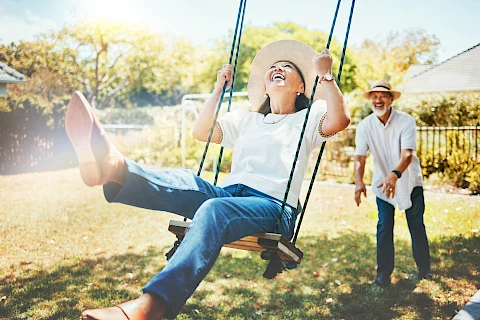Important Heat and Sun Safety Tips For Seniors

Even though the summer is drawing to an end, the temperature hasn’t dropped yet. Elderly people should continue to take precautions because they are more vulnerable to illnesses brought on by the heat and to sunburns.
We’re joined today by Dr Melissa Holland, Chief Medical Officer of UnitedHealthcare Medicaid & Retirement, who will be sharing safety advice to help older folks enjoy a safe and healthy end to summer and early autumn. Individuals 65 years of age and above are more vulnerable to heat-related disorders such heat exhaustion and heat stroke. This could be the result of various factors, like long-term medical conditions or drugs that hinder their bodies from controlling their body temperature. It doesn’t mean that the risks have disappeared, even though summer is almost over.
One of your main objectives should be staying hydrated, particularly in hot weather when sweating increases the amount of fluids your body needs to function. When you’re outside, try to stay in the shade as much as possible. You can also stay cool by wearing loose-fitting clothes and caps. It’s also critical to keep an eye on the weather and think about how any drugs you take may impact your body’s capacity to regulate its temperature. Use the air conditioning if you have access to it to cool off and take breaks. It makes sense that hot weather would make people less likely to exercise, but staying inactive can worsen long-term health issues including diabetes, obesity, and cardiovascular disease.
Our skin changes significantly with age, becoming less elastic and displaying the effects of years spent in the sun, like wrinkles, age spots, and dryness. Adopting certain basic measures is important to help our skin age gracefully. The skin can be protected from further injury by wearing protective clothing, finding shade, and using sunscreen on a regular basis. It’s imperative to abstain from smoking since it hastens the ageing of the skin. You can avoid discomfort and dryness by taking shorter showers, using gentle soaps, patting yourself dry gently, and using a daily moisturiser. Maintaining healthy skin as we age also requires stress management, eating a balanced diet, and making water a priority.
Being older is a major risk factor for developing skin cancer, therefore it’s critical to monitor any changes to your skin. Any growths that enlarge and take on pearly, transparent, tan, brown, black, or multicoloured appearances should be closely observed. Keep an eye out for changes in the size, thickness, colour, or texture of any birthmarks, moles, or brown spots—especially if they grow larger than a pencil rubber. Additionally, keep an eye out for any lesions or places that do not heal in three weeks or that continue to itch, sting, scab, or bleed. Go to www.UHC.com for further resources and information.




